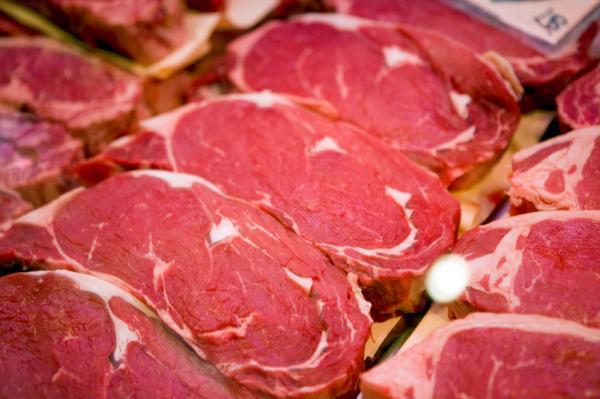There has been a great deal of coverage in the lay press about conjecture that there may be a link between red meat consumption and cancer. It appears there may be more fact than fiction behind this conjecture. Therefore, to be on the safe side it may be a good idea to eat more fish and chicken along with vegetables and fruit, and less red meat.
Medscape has reported, “Red Meat and Cancer: What’s the Beef?” Most of the evidence has supported the assumption that a link exists between colorectal cancer and red meat consumption, particularly processed red meat, such as hot dogs, bologna, sausages, bacon, ham, and lunch meats. Pro-cancer factors which are in red meat might be excess fat, protein, or iron, or heat-induced mutagens. Cooking meat at high temperatures or on an open flame produces heterocyclic amines (HCAs) and polycyclic aromatic hydrocarbons (PAHs), which have been observed to be very potent carcinogens.
MedPage Today has reported, “Red Meat Tied to Cancer Risk in Some People.”
There is a common gene mutation which appears to be associated with colorectal cancer risk in people who eat red and processed meat. The genetic variant rs4143094 was often seen in patients who eat red meats and processed meats and who came down with colorectal cancer. The consumption of vegetables, fruit, or fiber was found to be associated a decreased risk for colorectal cancer in these people.
PubMed Health writes that colorectal cancer is one of the leading causes of cancer-related deaths in the United States. However, early diagnosis can often lead to a complete cure. There is not one single cause of colon cancer. Just about all colon cancers begin as noncancerous, benign polyps, which slowly develop into cancer. You are at an increased risk for colon cancer if you are:
1-Older than 60
2-Are African American of eastern European descent
3-Eat a a lot of red or processed meats
4– Have colorectal polyps
5-Have inflammatory bowel disease (Crohn’s disease or ulcerative colitis)
6– Have a family history of colon cancer
7-Have a personal history of breast cancer
8-Suffer from Familial adenomatous polyposis (FAP) or Hereditary nonpolyposis colorectal cancer (HNPCC), also known as Lynch syndrome
Jane Figueiredo, PhD, of the University of Southern California in Los Angeles, has shared thoughts that these findings are important because diet is being recognized as a modifiable risk factor for colorectal cancer. Figueiredo and colleagues feel the genetic loci have interesting biological significance, but further functional analyses are required. However, they have concluded these findings have added additional support for modifiable risks in the diet for colorectal cancer. It you really want to be on the safe side with your health it is advisable to be careful about eating too much red meat. Fish, chicken, vegetables and fruit are after all lower in fat and calories and better for your heart anyway.
I personally have had the experience of being hit with feelings of low energy and fear from eating too much red meat. The thought of impending obesity, diabetes, depression, heart disease and cancer has had me crying out in my sleep from nightmares about all of this after a few fatty cheeseburgers from a fast food place. And so one day I quit eating too much red meat and made a switch to more salads with fresh fruit and vegetables. This has me feeling more energetic and optimistic about life. You can make this switch too and stop living in fear of getting catastrophically ill from what you eat.
HAROLD MANDEL


























































